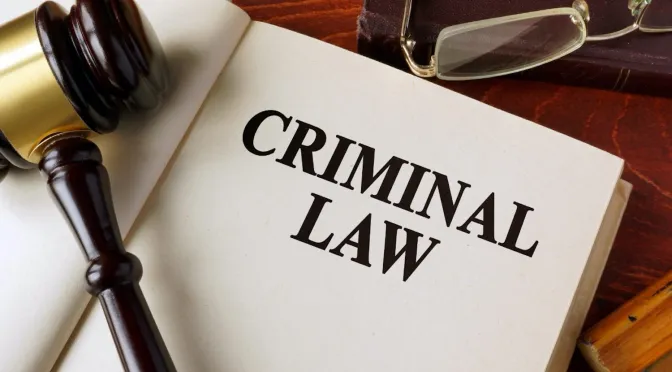Texas criminal law have long been a subject of interest and scrutiny due to their unique aspects and significant impact on the state’s legal system. These laws encompass a wide range of offenses, from minor misdemeanors to serious felonies, each carrying its own set of penalties and consequences. Understanding the intricacies of Texas criminal law is crucial for both legal professionals and individuals seeking to navigate the legal landscape. In this article, we will delve into the distinctive features that set Texas criminal laws apart, shedding light on their significance and implications.
Table of Contents
Historical Evolution of Texas Criminal Laws
The roots of Texas criminal laws trace back to the state’s historical development and the influences it has absorbed over the years. Originally derived from Spanish and Mexican legal traditions, these laws were further shaped by the Anglo-American common law system. Texas criminal law reflects a blend of these legal systems, exhibiting unique characteristics that distinguish them from those of other states. By examining their historical evolution, we gain insights into the factors that have shaped Texas criminal law and contributed to their distinctiveness.
Classification of Offenses under Texas Criminal Law
Texas criminal laws encompass a comprehensive classification of offenses, which are categorized into two main types: misdemeanors and felonies. Misdemeanors are less severe offenses, typically punishable by fines, probation, or short-term imprisonment. Felonies, on the other hand, encompass more serious crimes and carry harsher penalties, including long-term imprisonment, fines, or even capital punishment in certain cases. Understanding this classification is crucial in determining the potential consequences one may face under Texas criminal law.
Unique Features of Texas Criminal Laws
Texas criminal laws possess several unique features that set them apart from laws in other jurisdictions. One such feature is the concept of “stand your ground,” which grants individuals the right to use force, including deadly force, in self-defense without a duty to retreat. Another distinctive aspect is the state’s strict approach toward drug offenses, which often results in severe penalties. Additionally, Texas criminal law imposes enhanced penalties for repeat offenders, demonstrating the state’s commitment to deterring recidivism.
Jury Trial in Texas Criminal Laws
The right to a jury trial is a fundamental aspect of Texas criminal law. In most criminal cases, the defendant has the option to choose between a trial by a judge or a trial by a jury of their peers. This unique provision allows defendants to place their fate in the hands of a jury, ensuring a fair and impartial assessment of their guilt or innocence. The jury trial system in Texas criminal laws provides an opportunity for citizens to actively participate in the administration of justice, making it a distinctive aspect of the state’s legal framework.
Sentencing Guidelines and Discretion in Texas Criminal Laws
Texas criminal laws grant judges a significant degree of discretion in determining appropriate sentences for convicted individuals. While certain offenses carry mandatory minimum sentences, judges have the authority to deviate from these guidelines based on various factors, such as the defendant’s criminal history, the circumstances of the offense, and mitigating or aggravating factors. This discretion allows judges to tailor sentences to individual cases, promoting fairness and justice within the Texas criminal justice system.
Rehabilitation and Diversion Programs in Texas Criminal Laws
Recognizing the importance of rehabilitation and reintegration, Texas criminal laws incorporate various programs aimed at diverting individuals away from the traditional criminal justice system. These programs, such as drug courts and mental health diversion initiatives, provide eligible defendants with an opportunity to address the underlying causes of their criminal behavior and receive treatment instead of incarceration. By prioritizing rehabilitation, Texas criminal laws strive to reduce recidivism rates and promote positive outcomes for both individuals and communities.
Recent Reforms in Texas Criminal Laws
In recent years, Texas has witnessed significant reforms in its criminal justice system, aiming to address concerns of fairness, over-incarceration, and racial disparities. These reforms have focused on reducing penalties for certain non-violent offenses, expanding diversion programs, and improving access to alternative forms of punishment and rehabilitation. Additionally, efforts have been made to enhance police accountability and ensure equitable treatment of all individuals within the criminal justice system. These recent reforms reflect the state’s commitment to a more balanced and effective approach to criminal justice.
Challenges and Debates Surrounding Texas Criminal Laws
While Texas criminal law has undergone reforms to address existing challenges, there are ongoing debates and areas of concern that require further attention. One of the key issues is the racial and socioeconomic disparities in the application of criminal laws, with certain communities disproportionately impacted by arrests, convictions, and harsher penalties. Another area of debate revolves around the use of capital punishment, with discussions focusing on its effectiveness, fairness, and potential for wrongful convictions. Addressing these challenges will require continued efforts and a commitment to ensuring a just and equitable criminal justice system.
Conclusion
Texas criminal laws possess unique aspects that shape the state’s legal landscape and impact individuals’ lives. From their historical evolution to the recent reforms, these laws reflect a combination of legal traditions and contemporary approaches. Understanding the distinct features of Texas criminal law is essential for legal professionals, policymakers, and individuals navigating the criminal justice system. By recognizing the significance of these laws and addressing the challenges they present, Texas can strive towards a fair, balanced, and effective criminal justice system that serves the best interests of its citizens.
Learn about: Protect your rights and secure your firearms with the expertise of our dedicated gun right lawyer. Contact us today for legal assistance!
